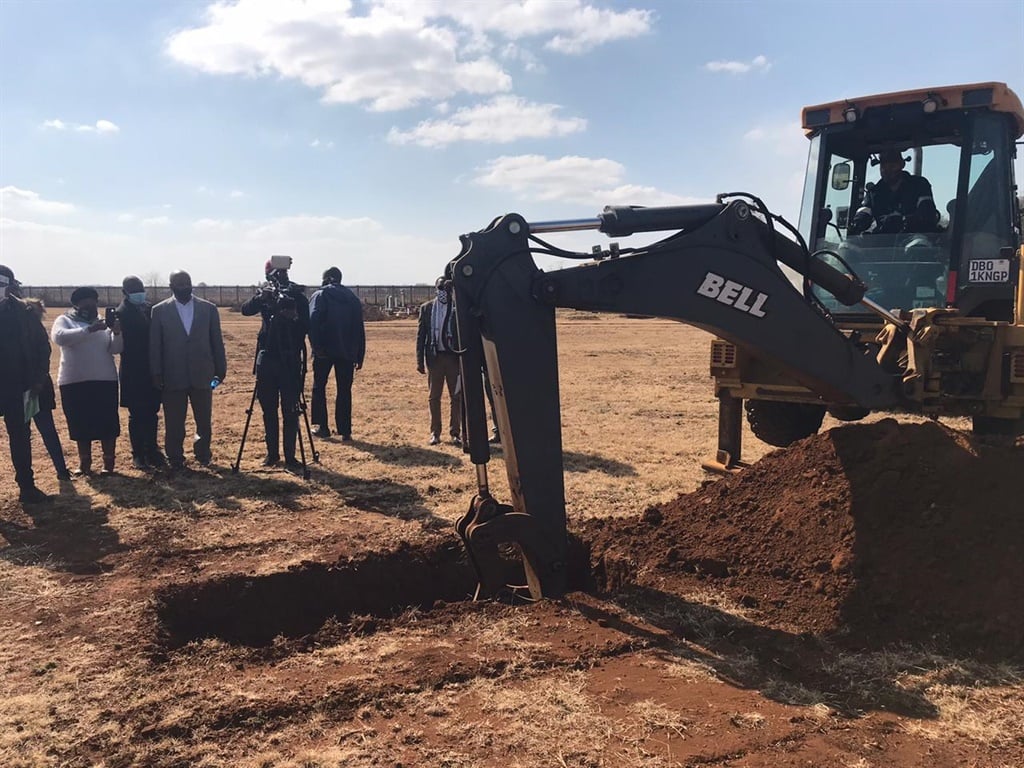
Should we be concerned about government preparing graves during the Covid-19 pandemic? asks Ralph Mathekga.
In African culture one cannot dig a grave for someone who is still alive, no matter how sick the person is.
Thus, one cannot be condoned to a grave while still alive. Each grave that is dug, should already have someone who has died to occupy that grave.
The message is that if you condemn someone to a grave and dig it before they die, you just might be the occupant of that grave yourself.
I prefer to deal with this question from a Social Anthropological point of view, as opposed to a religious approach that has already been pursued in relation to this matter.
In response to these developments, the controversial Black Land First (BLF) has allocated names to the open graves that have been dug by government in preparation for Covid-19 deaths. The BLF stated that government should focus on preventing deaths instead of focusing on digging graves for people who could still be saved.
Quoting Psalm 26 from the Bible, the organisation re-allocated graves to senior political leaders who are very much alive and kicking. This is the BLF's curse to senior politicians including President Cyril Ramaphosa.
Cultural taboo
Just as much as it is a cultural taboo to dig a grave for someone who is still alive, it is equally disturbing to allocate a grave and write down someone's name on it while they are still alive. By allocating names of living persons to the open graves, the BLF has crossed a cultural line. Their response is obviously that it was government that crossed the line by condemning some to the graves while they are still alive.
The saying is that nothing is more certain than death, and one way or another it will happen to all of us.
Since the coronavirus hit the world, the daily death tally due to the virus has become more regular in our media than weather reports. Our TV screens are filled with visuals of people being buried in mass graves. Death has almost become normal; yet we do not want to confront the idea that graves should be prepared in case they are needed.
The anxiety about coronavirus related deaths and the required preparedness is shared across different cultures and orientations in South Africa, and across the world. The Covid-19 pandemic has brought death much closer to our doorstep than has been the case before.
The challenge with South Africa though is that government seems to be the only entity that has an idea of how many people are going to lose their lives due to Covid-19 and how many graves will be needed, but is unwilling to share critical data.
Government maintains releasing some information will trigger panic about what is coming.
This is a matter of grave concern for South Africans who are confronted with a government that has a reputation of loving to place things out to tender, before firstly considering whether the service is necessary.
If our government is under the control of service providers who influence who gets the tender, then one cannot really dismiss the idea that there just might be grave digging for the sake of tenders, since South Africa is actually experiencing a low mortality rate from Covid-19 compared to many countries in the world.
Indeed, South Africa has a remarkably high infection rate taking into account global standards, but it also has an inexplicably low death rate. If we live beyond this virus, we just might find out why we did not die in higher numbers. For now, we are blessed beyond our comprehension.
Grateful, regardless
If we dig more graves than are needed, those who survive the virus will be so grateful that they will not bother asking why they did not die.
When it comes to digging graves for Covid-19, government is situated nicely.
If too many people start dying, there will be graves to bury them. If many open graves end up not being used, then government can claim success as it avoided a catastrophe.
In the end, if we die, we will have somewhere to be buried. And if we don't, we will just be happy to be alive.
Either way, we'll be grateful to government but still have no clue what is projected to come our way.
- Dr Ralph Mathekga is a political analyst and the author of When Zuma Goes and Ramaphosa's Turn.
** Want to respond to the columnist? Send your letter or article to opinions@news24.com with your name, profile picture, contact details and location. We encourage a diversity of voices and views in our readers' submissions and reserve the right not to publish any and all submissions received.
Disclaimer: News24 encourages freedom of speech and the expression of diverse views. The views of columnists published on News24 are therefore their own and do not necessarily represent the views of News24.